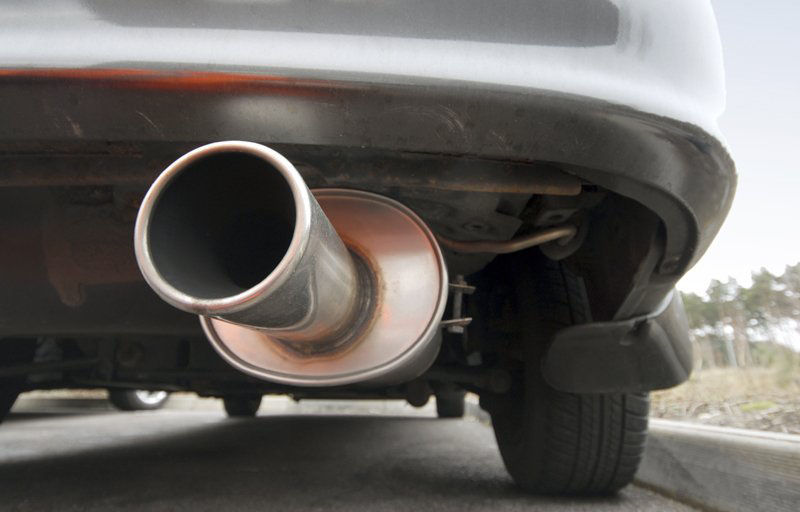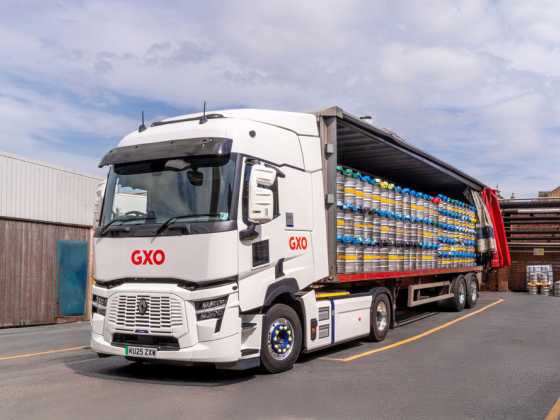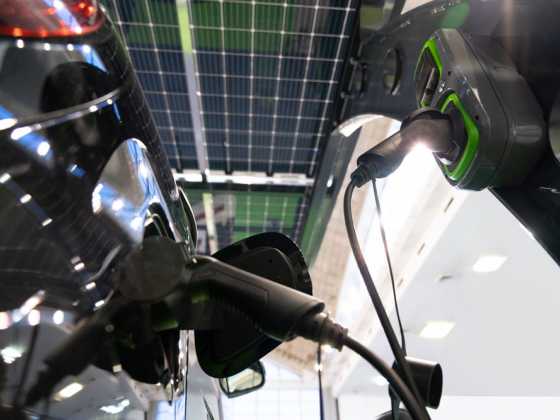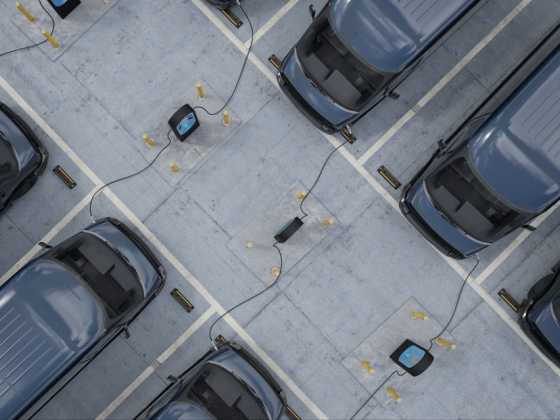Is 2025 the end date for diesel?

A report from an economist at Stanford University boldly suggests that in the next eight years, there will be no more petrol or diesel cars, buses or trucks sold in the world. GreenFleet investigates the latest on diesel, including the government’s draft air quality plans
The past month has seen more negative diesel stories in the headlines. Volvo have made a bold statement, saying it is likely to stop making new diesel engines, citing the cost of making engines compliant with ever higher anti-pollution standards as a reason for making the investment not worth it.
A report from an economist from Stanford University boldly suggests that in the next eight years, there will be no more petrol or diesel cars, buses or trucks sold in the world, only electric vehicles - which will lead to a collapse of oil prices and the petrol and diesel industry.
Also focusing on 2025 as an end date for diesel, the Liberal Democrats’ manifesto says it promises to ban the sale of diesel cars and small vans in the UK by that year, and that they will introduce a diesel scrappage scheme.
WHY WAS DIESEL SO POPULAR?
In 2001 Vehicle excise duty was cut on diesel cars to encourage the purchase of fuel-efficient diesels and reduce carbon dioxide emissions. However it has since emerged that diesel produces four times more nitrogen dioxide and 22 times more particulates, and is now viewed as a major public health risk.
The UK has struggled to keep within EU limits on pollution, specifically nitrogen dioxide, which is produced by diesel engines. In fact, thirty-seven regions out of 43 in the UK are currently in breach of EU NO2 limits.
DITCHING DIESEL
The headlines and hype around diesel appear to be making an impact on consumers’ next choice of vehicle. New research from BuyaCar.co.uk has revealed that three out of five diesel owners are planning to choose a different fuel type – such as petrol, hybrid and electric powered cars – when they next change their car.
Forty-eight per cent of the 1,000 survey participants said that they currently own a diesel car and 40 per cent of those plan to buy another diesel.
However, of those who say they will change their engine type, 35 per cent said they plan to opt for a petrol vehicle, and 20 per cent said they are looking to a buy hybrid model.
Five per cent are interested in switching to an electric vehicle.
Drivers who plan to ditch diesel typically cited the prospect of future charges as the reason, and almost half of them said they were also concerned about the environmental effects of diesels on air quality.
FLEETS
For the moment, diesels are still the preferred choice for fleets. However, Venson Automotive Solutions has recently said that fleet managers should “plan for a future with fewer diesel vehicles,” as the government reviews the way diesel vehicles are taxed, including possible changes to company car benefit-in-kind.
Diesel company cars incur an additional three per cent benefit-in-kind tax supplement up to a maximum of 37 per cent, which the government has previously said would remain in place until April 2021.
However, Venson says that national and international pressure for governments to take action to cut demand for diesel vehicles could see tax rises announced as soon as the Autumn Budget.
WORSE THAN THOUGHT
Firing up the argument that diesels are toxic to the environment, a new report by the University of York and the International Council on Clean Transportation has concluded that diesels are emitting up to 50 per cent more toxins than they should, if complying with pollution laws. They say this is down to “engine calibration, equipment failure, inadequate maintenance, and tampering by vehicle owners.”
For the report, researchers analysed data from 30 studies of vehicle emissions under real-world driving conditions around the world, according to The Telegraph. It was found that vehicles emitted 13.2 million tonnes of nitrogen oxide - 4.6 million more tonnes than the 8.6 million which is expected under laboratory test conditions.
COUNTERING THE ARGUMENT
To counteract the negativity on diesel at the moment, the SMMT gathered a display of Euro-6 commercial, utility, and emergency response vehicles at the opening of the Commercial Vehicle Show. This was to demonstrate that commercial vehicles play a huge role in the UK economy, our safety, and daily lives, and that new diesel vehicles are the cleanest in history and play a critical part in improving air quality.
Mike Hawes, SMMT Chief Executive, said: “Commercial vehicles play an essential but often overlooked role in keeping Britain functioning, performing jobs and transporting vital goods and services that we all rely on every day. This sector has never been so important to the UK economy – and to British jobs – and diesel’s role in powering these vital vehicles should not be downplayed.
Hawes continued: “Nearly all our commercial vehicles are driven by diesel, and thanks to heavy investment by industry to develop world-leading low emission technology, the latest Euro VI CVs on our roads today are the cleanest and safest ever.”
The government’s recent draft air quality strategy highlights that Euro 6 diesels will not face any penalty charges anywhere in the UK.
MOVING FORWARD
Measures in the draft air quality plan includes a diesel car scrappage scheme. The technical documents supporting the plan estimate that such a scheme could take 15,000 diesel and older petrol cars off the road.
The plan also mentions that “appropriate tax treatment for diesel vehicles” is considered, and that car fuel efficiency label should make it apparent to buyers how polluting their vehicle is.
The strategy also suggests that the government will give local authorities the opportunity find alternatives to the Clean Air Zones that are ‘non-charging.’
The plan however has been met with criticism from environmental groups. Co-leader of the Green Party, Caroline Lucas, has criticised the plan stating that the government is “standing idly by while Britain chokes” and called the plan “feeble.”
Sadiq Khan, Mayor of London said: “We’ve dragged the government kicking and screaming through the courts to produce these belated proposals – but they are toothless and woefully inadequate.”
Meanwhile James Thornton, ClientEarth chief executive said: “We are continuing to study the government's latest air quality plan, but on the face of it it looks much weaker than we had hoped for.”






